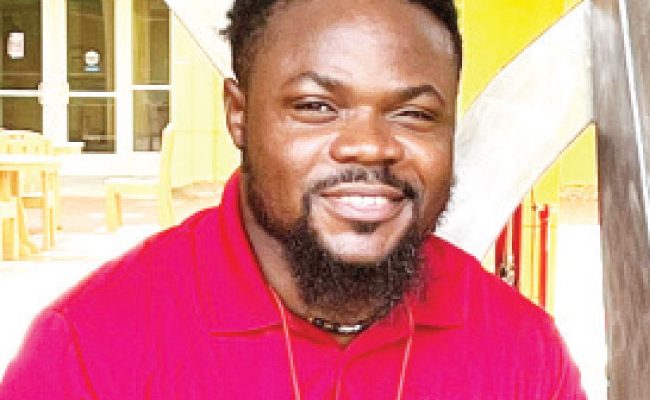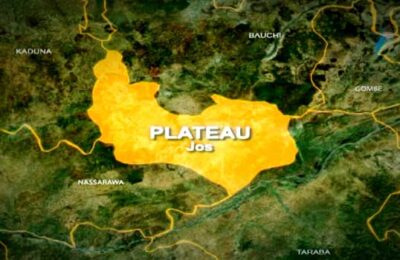Horeb Anthony is a broadcaster, linguist, and PhD student at the University of Mississippi, United States. In this interview by KINGSLEY ALUMONA, he speaks about his work and issues in language education in Nigeria.
HOW did your passion and journey into the liberal arts and languages begin? Looking back now, is this journey the best decision you have made regarding your life and career?

I grew up falling in love with languages. I think it was caused by my childhood experience, having lived in Nigeria and Benin Republic, both having different official languages ─ English in Nigeria, and French in Benin Republic. However, the two countries share indigenous languages such as Gugbe and Yoruba, which I also speak.
I chose to study languages not because I hated science subjects. I was good at mathematics, physics, chemistry, and biology in secondary school. However, I have always wanted to be an international journalist. Hence, speaking more than one language officially became a necessity. Later, I developed an interest in applied linguistics which involves language first and second acquisition, language policy and planning, and language preservation.
One of your research interests is language policy. Given that Nigeria is a multilingual country, what best language policy would you recommend that would foster unity and development among Nigerians?
One of the criticisms against language policy in Africa is the fact that it promotes colonial languages to the detriment of indigenous languages. In countries where the policy recommends the use of indigenous languages, there are still inadequacies in its implementation. Nigeria is the country with the highest number of indigenous languages and ethnic groups in Africa. A multilingual nation also needs a multilingual policy in which minority groups kept at the lower part of the ladder are not denied their language rights while being forced to abandon their language and embrace that of the majority group.
In late 2022, the Federal Government approved a National Language Policy that would ensure that primary pupils are taught in their mother tongues. However, up till now, the policy doesn’t appear to be effective. What do you think is responsible for this and do you think the policy is right for the county and the pupils?
It is an acceptable policy that targets the promotion of indigenous languages. However, instead of “mother tongues”, the policy says “the language of the immediate environment”. For instance, in places like Badagry, where majority of the people are Gugbe speakers, the Yoruba language is still considered the immediate language. The implication is that the children whose native language is Yoruba have an advantage over the other children (the Gugbe speakers) who will have to learn Yoruba as a second language thereby denying them the right to learn their own language at school.
How would you advise Nigerians who think it is a waste of time and money to study a foreign language in a tertiary institution when there are many Nigerian languages to study?
Learning a foreign language is never a waste of money or time. However, from my experience, and seeing the bias against the humanities in general, I advise language learners to add a skill to their language learning. It is also necessary that the Departments of Language Studies in our universities review their course programmes to meet the demands in the job market. They should create interdisciplinary courses for students majoring in languages. Otherwise, we will continue to produce graduates who will not be employed but run back to teaching.
Most people do not see the study or practice of languages as a lucrative venture. How do you earn a living with your language degrees and expertise?
Well, it is a general thing to know that teachers do their jobs because of their passion for it. Teaching has never been a lucrative venture. However, when you speak different languages and add a skill to it, then you have an advantage and that may get you a lucrative job.
I majorly teach French and I am currently a graduate instructor of French at the University of Mississippi. I offer translation and interpretation services in French and English, and also from those two languages to my native language and vice-versa.
You broadcast in French during your media engagements at the University of Lagos (UNILAG) radio station and Afro Webtv. How did the UNILAG community accept these broadcasts in French, given that the majority of them do not understand it?
The French programme existed at the University of Lagos for a few years before my admission into the university in 2010. It was an agreement signed by the French Embassy and the University of Lagos with the target of promoting the French Language, especially in the cosmopolitan state of Lagos, where many francophones from the African region reside. It was there at UNILAG radio that someone listened to my French programmes and introduced me to Liberté FM, an African diaspora web radio located in Chicago, and later got introduced to Afro Webtv.
The French programmes greatly impacted the learning of French among the students because it created an artificial linguistic environment for French language students and at some point, made UNILAG Radio a bilingual media station because live coverage was done in both English and French Languages. Aside from students majoring in French language, students from sciences, business administration, and international studies all minor in French. While the Department of European Languages had capable hands and programmes to meet the needs of the students, the radio programme offered extra-curricular activities by inviting the students on our shows to express themselves, an activity that they enjoyed the most.
Tell us about your study/research areas and your other works at the University of Mississippi.
It has been a great journey from 2021 as a PhD student in the Department of Modern Languages. The environment has opened my eyes to a deeper knowledge of the vital function of language in our world because we do mostly everything through words. My focus is on second language acquisition, language policy and planning, and language preservation. Here, I am a graduate instructor of French and teach basic and intermediate intensive French courses. I am also an executive member of the Modern Languages Graduate Students Colloquium on Applied Linguistics and Tesol. I have also participated in article reviews for conferences in the department.
What is your research thesis about, and how would its potential findings impact society?
My research focuses on minority language preservation in Nigeria. Thus, my dissertation is titled ‘A sociolinguistic analysis of the activities of the Ogu General Assembly towards the preservation of Gugbe in Nigeria’. The OGA is a sociocultural, economic, and political group fighting for the well-being of the Ogu people of Nigeria and their language, Gugbe. I became interested in their activities, and I am curious about how they plan to achieve their goal of maintaining Gugbe, because the latter, in contact with Yoruba, is facing a shift. However, they must be taking the right steps because language rights are important just as every other human right as declared by the United Nations. My research will bring the activities of the OGA to the scientific spotlight and, as an applied linguist, I am in the right position to make recommendations where necessary.
As the founder, tell us about the impact you are making with Horeb Nation Talk Show.
The Horeb Nation Talk Show is an online media platform created in December 2023 with the view of discussing matters affecting the African youths. Our discourses centre on education, society, and trends in the entertainment industry. Questions regarding equality and inequality in modern society are raised and we also look into the roles youths can play in contributing to their immediate environments. Moreover, it is the platform on which international students meet to talk and reflect on issues affecting them.
READ ALSO: Tithe: ‘It takes humility to apologise’, Mike Bamiloye defends Adeboye







